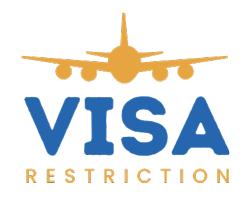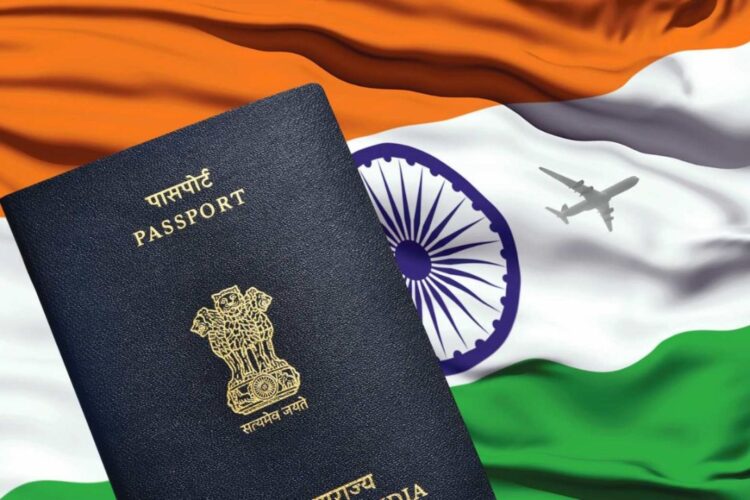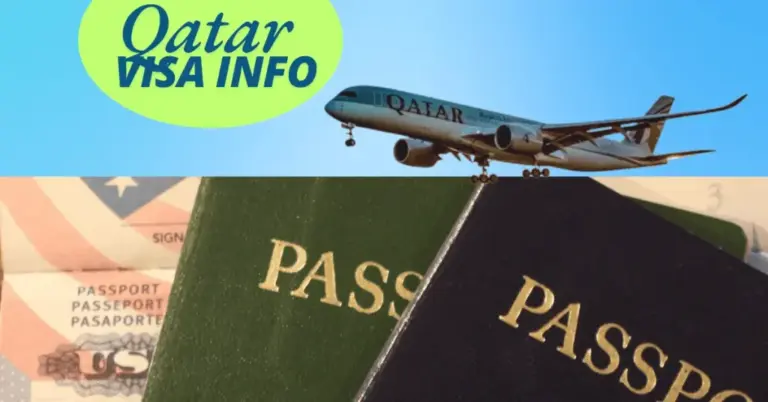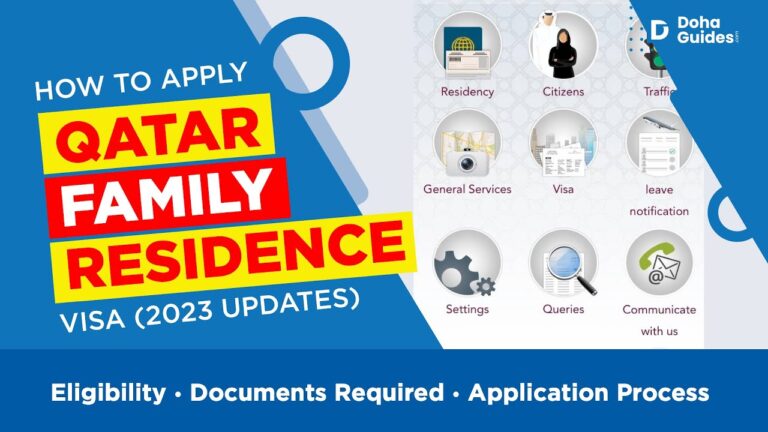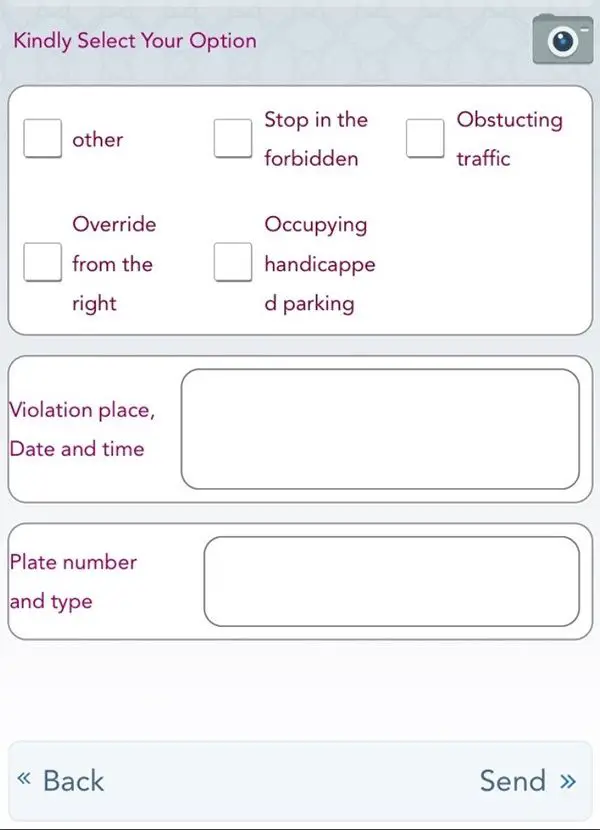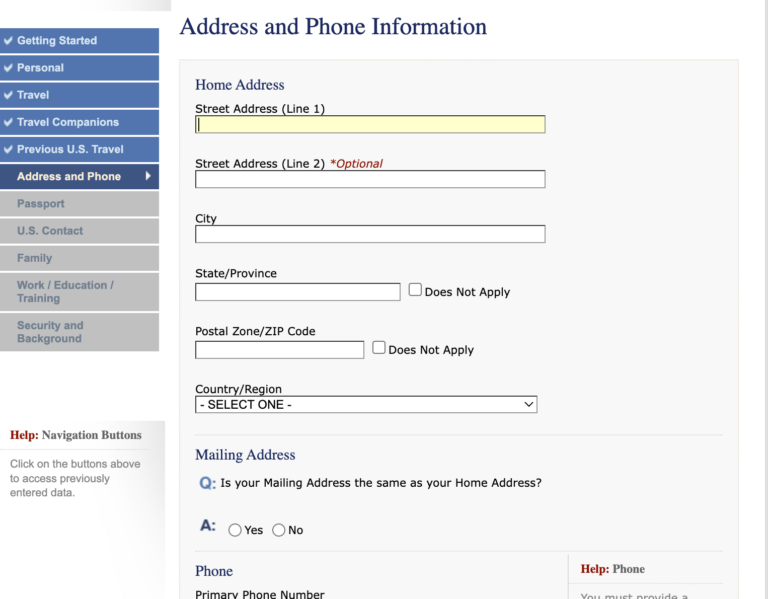Your Guide to a Hassle-Free Experience: Tourist Visa Background Checks
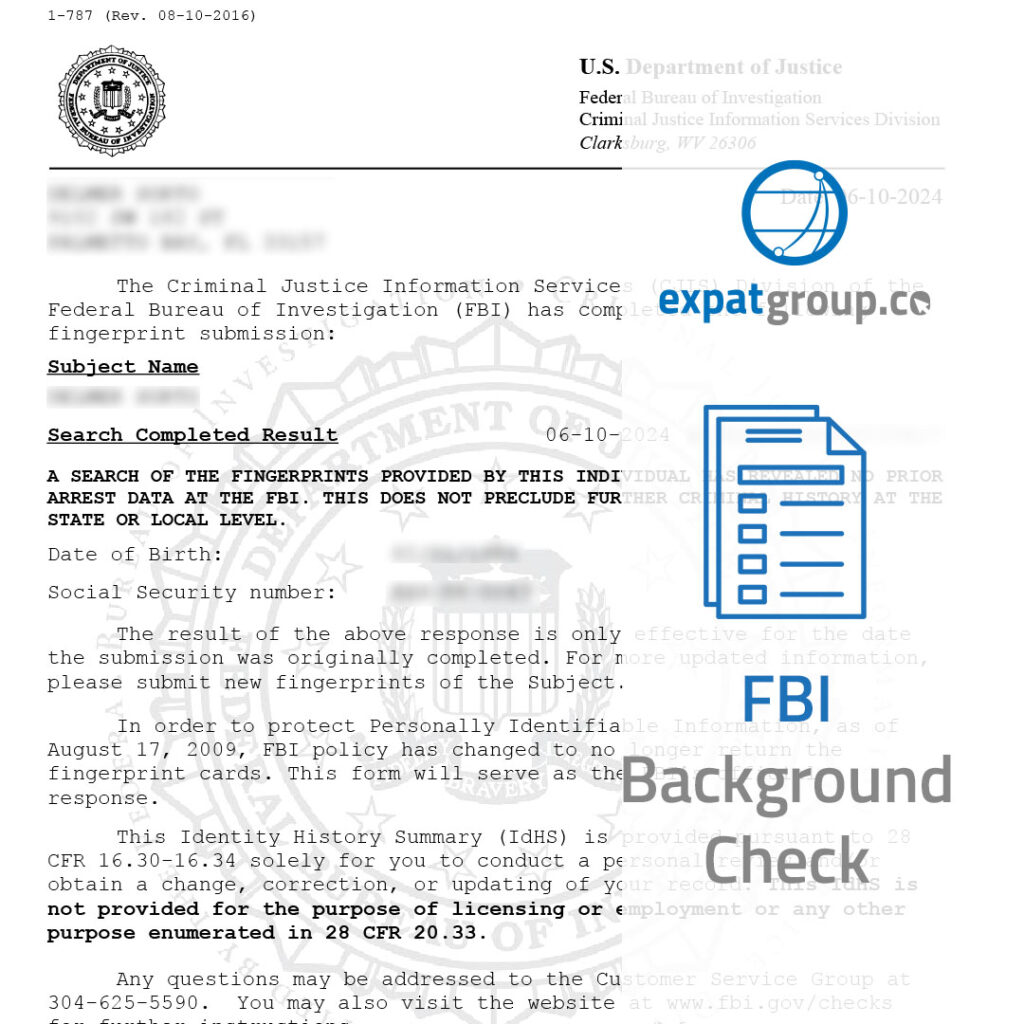
Understanding Visa Background Checks
Visa background checks play a crucial role in the tourism industry, ensuring the security and eligibility of travelers. This section will dive into the importance of these checks and the different types that exist.
Importance of Background Checks
Background checks are essential for a variety of reasons, particularly when it comes to tourist visas. They help verify the applicant’s identity, ensure that there are no criminal records, and ascertain that the provided documents are valid. The U.S. government and many other countries mandate these checks to maintain national security and prevent the entry of individuals who might pose a threat.
For instance, a “certificate of good conduct” or proof of a clean criminal record might be required for several reasons, including school, work, and adoption abroad. This rigorous process helps ensure that only eligible individuals receive the benefits of being granted a tourist visa. To understand what specific documentation you might need, refer to your tourist visa checklist.
Types of Background Checks
Numerous types of background checks can be conducted during the tourist visa application process. Understanding these types can better prepare you for the requirements and timelines involved.
Criminal Record Checks
Criminal record checks involve searching local, state, and federal databases to determine if you have any criminal history. This check ensures that no individuals with significant criminal backgrounds gain entry into the country. Learn more about documents for visa interview to be well-prepared.
FBI Records Checks
FBI records checks are more thorough and include fingerprint verification and name checks through various databases. This type of check is often part of the U.S. visa application process and can take several weeks to months to complete (De Castroverde Law). Details on tourist visa fingerprinting may provide additional insights.
| Background Check Type | Typical Duration |
|---|---|
| Criminal Record Check (Local/State) | Up to 2 weeks |
| FBI Records Check | Several weeks to 6 months |
By having a comprehensive understanding of the importance and types of background checks, you’ll be better prepared for the tourist visa application process. This will ensure a smoother and more hassle-free experience in obtaining your visa. For specific requirements related to the uk tourist visa or us tourist visa for parents, consult the respective links.
Visa Application Process
The visa application process involves various steps and thorough background checks to ensure the eligibility of applicants. For tourists, these checks fall into two main categories: nonimmigrant visa background checks and immigrant visa background checks.
Nonimmigrant Visa Background Checks
When applying for a nonimmigrant visa, such as a tourist visa, background checks are an essential part of the process. These checks typically commence after the application payment is made. The background check process ensures the applicant’s eligibility, integrity, and compliance with visa regulations.
Key Components of Nonimmigrant Visa Background Checks:
- Fingerprint Verification: Confirming your identity through fingerprint scans.
- Name Checks: Running your name through multiple databases to identify any criminal records, aliases, warrants, or inclusion in the “no-fly” list.
- Security Clearance: Evaluating you against national security databases to ensure no threats are posed.
Nonimmigrant visa background checks are generally quicker compared to those for immigrant visas. The results typically contribute to a smoother and faster visa processing time. To learn more, visit our page on tourist visa processing time.
Immigrant Visa Background Checks
The immigrant visa background check process is more comprehensive and starts earlier in the application process. This is because immigrant visas involve more preparatory work and long-term residency considerations. Payments made earlier allow an earlier start on background checks (Quora).
Key Components of Immigrant Visa Background Checks:
- Fingerprint Verification: Just like nonimmigrant visas, fingerprints are taken for identity confirmation.
- Name Checks: The USCIS conducts thorough name checks through various databases to screen for criminal records, aliases, and inclusion in the “no-fly” list.
- Alias Verification: Checking for any other names you might have used in the past.
- Warrant Searches: Ensuring there are no outstanding warrants against you.
- Moral Character Check: Assessing your moral character to confirm your eligibility for immigration benefits.
- Security Clearance: Conducting additional security checks to ensure you do not pose a threat to national security.
Due to the intricate nature of these checks, the process can take several months, sometimes up to six months. This extended timeframe is necessary to thoroughly verify your eligibility for immigration benefits.
To avoid potential delays, make sure to provide accurate and complete information during the application process. For additional guidance, refer to our articles on documents for visa interview and how to apply for tourist visa.
Comparative Table: Nonimmigrant vs. Immigrant Visa Background Checks
| Check Type | Nonimmigrant Visa | Immigrant Visa |
|---|---|---|
| Fingerprint Verification | Yes | Yes |
| Name Checks | Yes | Yes |
| Alias Verification | Limited | Comprehensive |
| Warrant Searches | Basic | Extensive |
| Moral Character Check | Limited | Extensive |
| Security Clearance | Yes | Yes |
| Duration | Few weeks | Up to six months |
By understanding these background checks, you can better prepare and ensure a smoother application process. For more specific requirements, visit our page on tourist visa requirements.
Components of a Background Check
Background checks are a crucial part of the tourist visa background check process. Two primary components of these checks are criminal record checks and FBI records checks.
Criminal Record Checks
When you apply for a tourist visa, criminal record checks are performed to ensure you do not have any criminal history that could disqualify you from entry. This type of check involves searching various databases to identify any past criminal activities or charges. Criminal record checks are essential for maintaining safety and security (De Castroverde Law).
| Aspect | Description |
|---|---|
| Purpose | Identifies past criminal activities or charges |
| Databases Searched | Federal, state, and local government databases |
| Common Uses | Visa applications, employment with vulnerable populations, firearm purchases |
FBI Records Checks
FBI records checks are another vital element of the background check process for tourist visa applicants. The Federal Bureau of Investigation, through its Criminal Justice Information Services (CJIS) Division, conducts these checks. This involves verifying your fingerprints and searching for any criminal history or inclusion on watchlists (Travel.State.Gov).
The FBI offers specific procedures for requesting these records, including submitting your fingerprints. Additionally, the FBI can authenticate the search results with an official seal and signature for international requests, ensuring compliance with the destination country’s requirements (Travel.State.Gov).
| Aspect | Description |
|---|---|
| Purpose | Verifies fingerprints and searches FBI databases |
| Division | Criminal Justice Information Services (CJIS) |
| Common Uses | U.S. citizenship applications, government employment, visa applications |
Background checks, including criminal record checks and FBI records checks, are essential in obtaining a tourist visa. For more details on other aspects of the process, like the verification process or obtaining background check documents, explore our related guides.
For further information regarding other visa-related topics, you may find our articles on documents for visa interview and tourist visa interview tips useful.
Immigration Background Checks
USCIS Verification Process
When you apply for a tourist visa, the United States Citizenship and Immigration Services (USCIS) conducts comprehensive background checks to ensure only eligible individuals receive immigration benefits. The aim is to verify that applicants have good moral character and that the information provided is accurate (De Castroverde Law).
The background check process includes several critical components:
- Fingerprints Verification: Your fingerprints are cross-checked against various databases to identify any criminal history or security concerns.
- Name Checks: Your name is checked through multiple databases to ensure there are no warrants or aliases.
- No-Fly List Checks: USCIS ensures you are not included in the “no-fly” list, which could indicate national security threats.
These checks are designed to screen for any discrepancies or false information that might have been provided, particularly concerning criminal records or citizenship status (Quora).
Duration of Background Checks
The duration of a background check can vary significantly based on several factors, including the type of visa you are applying for and the complexity of your background. Generally, the process can take up to six months (De Castroverde Law). Understanding the time frame involved can help you better plan your travel and application process.
| Type of Check | Typical Duration |
|---|---|
| Fingerprints Verification | 1-2 weeks |
| Name Checks | 2-4 weeks |
| Alias and Warrant Checks | 4-6 weeks |
| Full Background Check | Up to 6 months |
It’s critical to remember that while embassies do not directly conduct background checks for B1/B2 tourist visas, the USCIS in the USA performs these verifications. This process is known as “administrative processing” and can last about a week, but it may take longer in some cases.
To learn more about the necessary documents and steps involved in applying for a tourist visa, refer to our guides on how to apply for tourist visa and the tourist visa application process.
Obtaining Background Check Documents
When applying for a tourist visa, you may need to provide a background check to demonstrate that you don’t have a criminal record. This process usually involves obtaining documentation from local police or the FBI.
Local Police Checks
To obtain a local police check, you should visit your local police department. Requesting a local or state criminal records search will provide you with the necessary documentation. This document is often referred to as a “certificate of good conduct” and can be used to prove the absence of a criminal record (Travel.State.Gov).
| Step | Description |
|---|---|
| Visit Local Police Department | Go to your local police station. |
| Request Search | Ask for a local or state criminal records search. |
| Receive Certificate | Obtain your “certificate of good conduct”. |
For more information, read our detailed guide on documents for visa interview.
FBI Records Requests
For a more comprehensive background check, the Federal Bureau of Investigation (FBI) offers records checks through their Criminal Justice Information Services (CJIS) Division. This process is often necessary if a local police check is insufficient for your visa application.
To request your FBI Identification Record, follow these steps:
- Fingerprint Submission: You will need to submit your fingerprints as part of the request.
- Request Submission: Complete and submit the appropriate forms to the FBI.
- Receive Results: Get your FBI Identification Record or proof of no criminal record.
| Step | Description |
|---|---|
| Fingerprint Submission | Submit your fingerprints to the FBI. |
| Complete Forms | Fill out and send the necessary forms. |
| Receive Notification | Get your FBI Identification Record. |
For more detailed guidance, check out our information on tourist visa background check.
Internal Links
Make sure to authenticate your documents if required. You might need state-level authentication for local police department documents or further authentication for FBI results for international use. For more detailed steps, visit our article on authenticating documents for visa applications.
By understanding the processes for obtaining both local police checks and FBI records, you can ensure a hassle-free experience when applying for your tourist visa.
Authenticating Background Check Documents
When applying for a tourist visa, authenticating background check documents is a key step to ensure they are valid and recognized by the immigration authorities. Authentication confirms that your documents are genuine and have been verified by the appropriate authorities.
Authentication Process Overview
The authentication process involves several steps, which may vary depending on the country and the type of visa you are applying for. Below is a general overview of the process:
- Obtain Required Documents:
- Obtain local and state criminal records checks.
- Request an FBI records check if necessary (Travel State Gov).
- Initial Verification:
- Your criminal records or background check documents must first be verified by the issuing authority. For local checks, this is usually your local police department.
- For FBI records, the FBI can authenticate the results by placing the FBI seal and the signature of a Division official on them.
- Secondary Authentication:
- These documents may then need further authentication by higher authorities, such as the U.S. Department of State Authentications Office if required by the destination country’s immigration department.
- Final Legalization:
- In some cases, documents may need to be legalized by the embassy or consulate of the destination country.
Authentication for Visa Applications
Specific requirements for document authentication can vary depending on the destination country. Some countries may require additional documents such as a travel itinerary, a letter of invitation, or a comprehensive background check (Global Girl Travels). Here is a more detailed guide on the authentication steps for your tourist visa application:
| Step | Description |
|---|---|
| 1. Local Police Check | Visit your local police department to get a certified criminal records check. |
| 2. FBI Records Request | If required, request an FBI criminal records check and ensure it is authenticated by the FBI with a seal and signature. |
| 3. State Department Authentication | Send your FBI authenticated document to the U.S. Department of State Authentications Office if required by the country you are traveling to. |
| 4. Embassy Legalization | Obtain further legalization from the embassy or consulate of your destination country if necessary. |
For more on the visa application process, visit our comprehensive guide on how to apply for a tourist visa.
Internal Links for Further Reading
- Tourist visa checklist
- Documents for visa interview
- Tourist visa application process
- Tourist visa photo requirements
Each of these steps must be followed meticulously to ensure that your documents meet all the requirements for your intended destination, helping you achieve a hassle-free tourist visa background check process.
Challenges in Visa Applications
Navigating the tourist visa application process can present several challenges, particularly when it comes to background checks. Understanding the potential hurdles can help you prepare better and increase your chances of approval.
Impact of Criminal Records
A criminal background check reveals an individual’s criminal history and behavior, which can significantly impact your tourist visa application (Global Girl Travels). Here are some important points:
- Past Offenses: A history of significant criminal offenses, especially those involving violence or drug-related crimes, can be a major red flag and might result in visa denial.
- US-Specific Checks: For US tourist visas, applicants are checked against the No Fly list. If no criminal record exists, a waiver form must be completed. Suspicious individuals might have their backgrounds checked by Interpol, and those with considerable criminal records might be refused entry (Quora).
- Misrepresentation: False information about one’s criminal record in the application process can lead to serious consequences, including a complete ban on entry.
| Country | Background Check Requirement | Impact of Criminal Record |
|---|---|---|
| USA | No Fly List, Waiver Form | May lead to visa denial or entry refusal |
| Australia | Police Certificate | Depending on the severity, may lead to rejection |
| Canada | Criminal Record Check | Significant past offenses can result in denial |
Visa Denial Reasons
Several factors can lead to a tourist visa denial. Being aware of these common reasons can help you take preventative measures and improve your success rate. Here are some notable ones:
- Incomplete Documentation: Providing incomplete or incorrect documents can lead to denial. Ensure all documents for visa interview are accurate and up to date.
- Failure to Prove Ties: Demonstrating strong ties to your home country proves your intention to return. If this is not established, your application might be rejected.
- Financial Inadequacy: Inability to demonstrate sufficient funds for your stay can also be a reason for denial. Check tourist visa financial requirements for specifics.
- Application from a Third Country: Applying from a country other than your home country generally has higher denial rates (Boundless).
- Interview Issues: Failing to show up for the interview on time, being unable to answer the officer’s questions adequately, or misrepresenting yourself are all potential red flags (Boundless).
Failing to meet any of the above criteria can lead to visa denial:
| Denial Reason | Description |
|---|---|
| Incomplete Documentation | Missing or incorrect paperwork can halt your application process |
| Failure to Prove Ties | Inability to prove compelling ties to your home country can imply you might overstay |
| Financial Inadequacy | Showing insufficient funds to support your stay can be a major reason for denial |
| Third Country Application | Higher denial rates for those applying outside their home country |
| Interview Issues | Poor performance in the interview or misrepresentation can lead to immediate denial |
Understanding these challenges and preparing accordingly can help you navigate the tourist visa application process more effectively. For more detailed information on specific steps and required documents, visit our comprehensive guide on tourist visa requirements.
Overcoming Visa Denials
Addressing Ineligibility Reasons
When faced with a tourist visa denial, it’s crucial to comprehend the specific reason for the ineligibility. Understanding why the application was refused allows you to address the issue directly. Here are some common reasons for visa ineligibilities and steps to address them:
-
Incomplete Documentation (INA Section 221(g)): A refusal under this section means that the consular officer did not have all required information to determine eligibility. You can resolve this by providing the missing documents or information within one year (Travel.State.Gov).
-
Failure to Demonstrate Strong Ties (INA Section 214(b)): This refusal signifies that you did not prove strong ties to your home country. To overcome this, you may present evidence of significant changes in your circumstances, such as stable employment, family obligations, or property ownership (Travel.State.Gov).
-
Potential Public Charge (INA Section 212(a)(4)): If the consular officer believes you may become a public charge, providing sufficient financial support and proof of financial resources can help. For more on this, visit tourist visa financial requirements.
-
Fraud and Misrepresentation (INA Section 212(a)(6)(C)(i)): Visa denial due to fraud or misrepresentation is severe. Seeking legal advice to understand your options and, in eligible cases, apply for a waiver of ineligibility may be necessary (Travel.State.Gov).
-
Unlawful Presence (INA Section 212(a)(9)(B)(i)): Addressing a refusal for unlawful presence involves demonstrating that your stay in the U.S. was lawful, or applying for a waiver if you have U.S. citizen family members who would experience extreme hardship.
Reapplying After Denials
After understanding and addressing the reasons for denial, you can reapply for a tourist visa. Follow these steps to increase the likelihood of approval the next time:
-
Collect New Evidence: Gather any additional documents or evidence that address the reason for your previous denial. Ensure you have comprehensive proof to support your new application.
-
Complete the Application Form: Fill out the tourist visa application form accurately, double-checking for any errors or omissions that could result in another denial.
-
Prepare for the Visa Interview: Be ready to discuss any changes in your situation and present the new evidence convincingly. Review tourist visa interview tips for helpful advice.
-
Submit Additional Documentation: Provide all required and additional supportive documents. Check out the list of required documents for visa interview to ensure completeness.
-
Consult Legal Counsel: For complex cases, especially those involving fraud or misrepresentation, consider legal advice to guide you through the reapplication process.
| Ineligibility Reason | Overcoming Strategy |
|---|---|
| Incomplete Documentation (221(g)) | Provide missing documents within a year |
| Lack of Strong Ties (214(b)) | Show stable employment, family ties |
| Potential Public Charge (212(a)(4)) | Prove financial stability, financial sponsor |
| Fraud or Misrepresentation (212(a)(6)(C)(i)) | Seek legal advice, apply for a waiver |
| Unlawful Presence (212(a)(9)(B)(i)) | Demonstrate lawful stay, apply for a waiver |
Addressing specific ineligibility reasons with appropriate strategies will significantly improve your chances of getting your tourist visa approved. Browse related resources on reapplying after a visa denial for further guidance.
